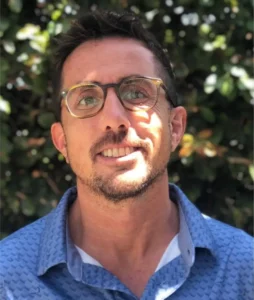If you or a loved one in the Orange County, CA area suffer from substance use disorder, finding help can seem challenging. Many providers will compete to help with treatments, but the sheer number of treatments can make it challenging to choose the right option.
Use this guide to better understand the benefits and nuances of medication-assisted treatment (MAT), which can become a core piece of treating your addiction and putting you on the path to recovery. Substance abuse can lead to severe health implications, if there are any symptoms of abuse seeking addiction treatment is advised.
Medication-assisted treatment (MAT) describes a “whole patient” course of treatment that combines the strategic use of medication, counseling, and behavioral therapies like CBT. The medications approved by the Food and Drug Administration FDA are designed to detox the patient and reduce the physical dependence on a substance like alcohol or opioids.
MAT is most commonly used in the treatment of opioid use disorder. FDA-approved medications can help prevent withdrawal symptoms for patients struggling with opioid dependency. Used in combination with counseling, MAT can be incredibly effective at treating substance use disorder.
There is no such thing as a standard MAT program. Instead, every program (from the medication to the types of counseling and therapy) is designed to fit each patient’s needs and situation. Working with the right medical professionals to develop a program for your specific needs is vital.
As a result of these two combined factors, MAT seeks to help patients recover in the short term and minimize the risk of a potential relapse. The goal is a complete, lasting recovery that allows the patient to leave the substance they had been abusing in their past once and for all, and without continued external help.
Studies have consistently shown that medication-assisted treatment improves patient outcomes compared to therapy models that only focus on behavioral treatments and alternatives that focus only on fighting the short-term effect of substance abuse. One long-term study found that opioid overdoses decreased significantly in patients after participating in MAT programs, even years after the initial treatment.
Finally, MAT effectively increases the degree to which patients want to become involved in their treatment, including programs like group therapy. As a result, they become more likely to stay in their rehabilitation program until they are truly healed, leading to more positive long-term outcomes in the process.
Medication-assisted treatment has proven to be particularly effective for individuals struggling with alcohol and opioid addictions. A wide range of medications have been developed specifically to help assist with the short-term struggles of withdrawal and detox:
For substance abuse patients, it’s not a question of which of these medications helps with recovery. A full agonist is typically used as an immediate treatment, which can transition to partial antagonists over time. Meanwhile, opioid antagonists are long-term treatments designed to prevent relapses and promote continued abstinence.
Of course, the patient is always in the right environment with these medications. Instead, they are administered in a controlled clinical setting, allowing the medical provider to monitor for any side effects or lack of effectiveness. Over time, the medications reduce and potentially eliminate the physical dependence of the substance they’re designed to treat.
Alongside the medication, an experienced clinic like Turning Tides will build a treatment plan for each patient that includes treatments like CBT, DBT, EMDR, family therapy, and group therapy. These treatments are designed to address the root of the patient’s addiction, working on personal growth without distractions or physical limitations caused by the drug.
Treating your substance addiction is a comprehensive process, but that doesn’t mean it’s a lost cause. The proper course of treatment can go a long way to eliminate the abuse and put you or someone you love who struggles with abuse on a path to a happier, more fulfilled life.
Every addict comes with a unique background and situation. Each of these situations and backgrounds requires a custom treatment plan designed to address individual needs and pain points. Only such a customized plan can ultimately successfully fight the addiction and put you on the path to long-term recovery.

Finding the right help can make all the difference when you struggle with addiction. You need a medical provider you can trust, not just with finding the right course of treatment but also with staying by your side every step of the way. That’s where Turning Tides comes in.
As a residential-detox facility, we offer all of the treatments necessary to build a comprehensive MAT program for your needs. Our goal is only to use evidence-based approaches to treat addiction while ensuring that you have a partner by your side who will help ensure your path to a better life.
Let our team of professionals help you find your way back to your path and a fulfilled life. Don’t let a substance use disorder stand in your way.
Contact us today to set up your consultation and learn more about our medication-assisted treatment options.

Matthew is a licensed marriage and family therapist and clinical supervisor in Orange County, California. Matthew has an extensive history working with the substance abuse and mental health population and is committed to client care with an ethical approach to treatment. Matthew utilizes a solution-focused, cognitive behavioral approach to therapy. He emphasizes the importance of creating a recovery environment which supports deep and meaningful sober connection, a system of accountability, daily structure and healthy routine, and an aftercare plan which will support continued sobriety post-treatment.
Turning Tides © 2024 All rights reserved
Welcome to Turning Tides. Fill out the form and a turning Tides representative will get in contact with you.